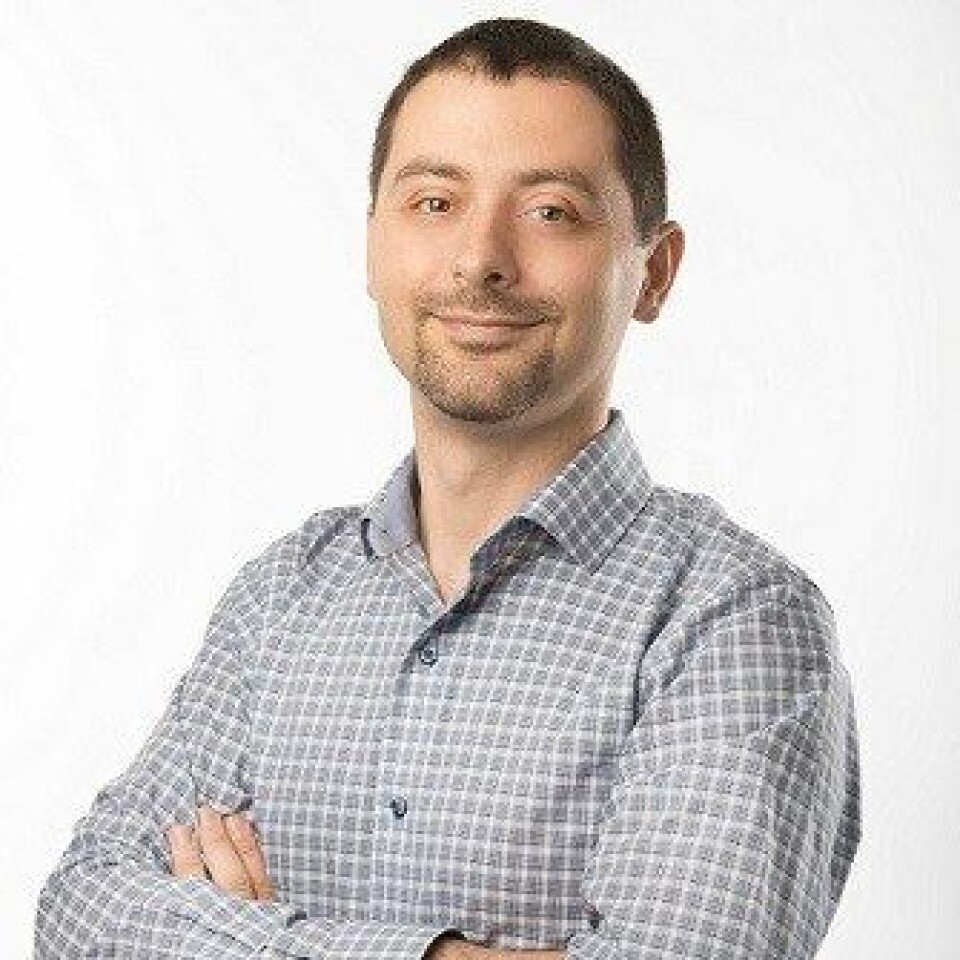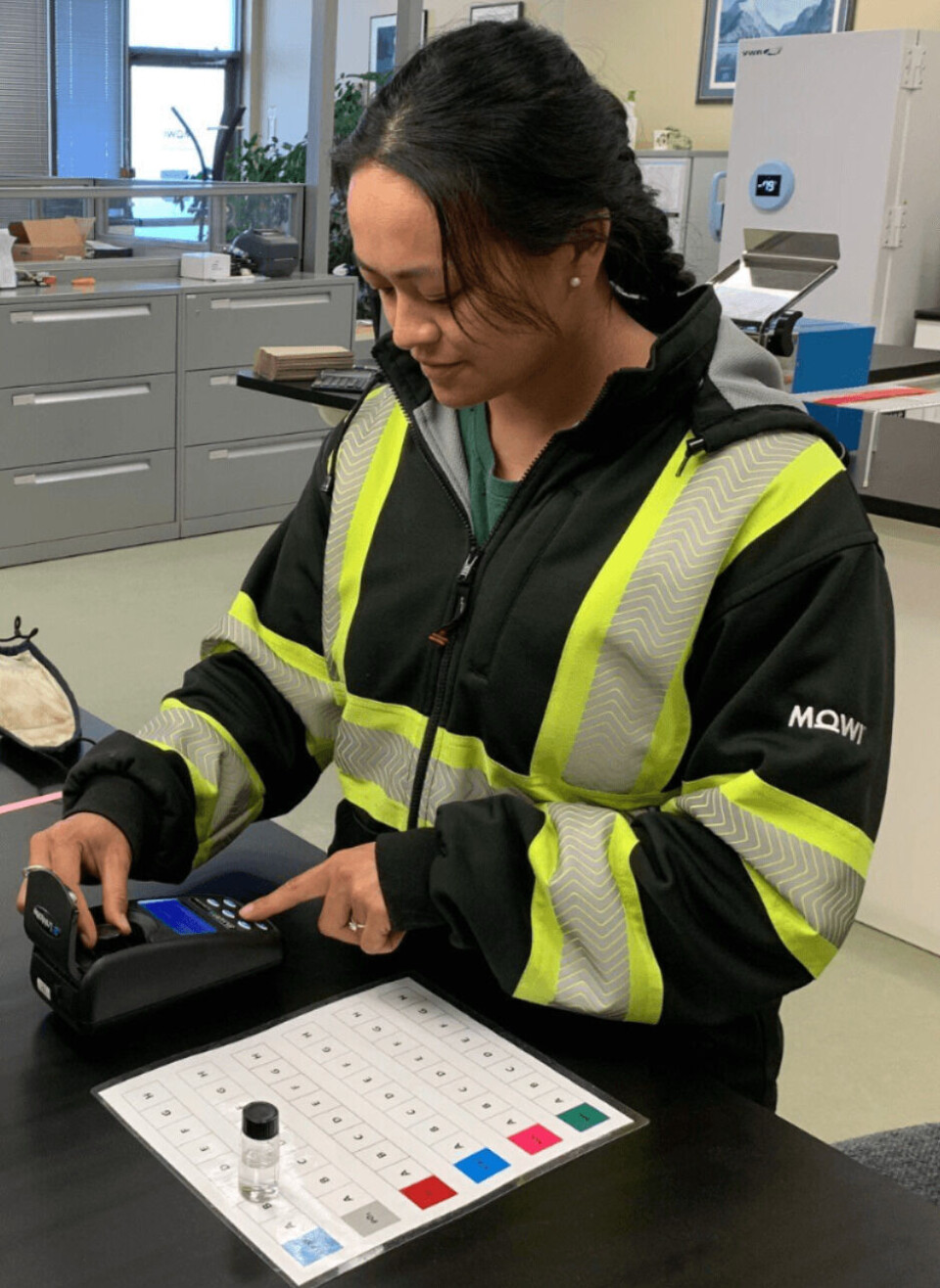
Focus on plankton pays dividends for Mowi
Increased efforts to learn more about algal blooms and how to mitigate their effects are paying off for salmon farmer Mowi in western Canada, where plankton have been a significant problem in past years.
In the last two years Mowi has increased its water quality team from just one person to six in British Columbia, and the number of staff training programmes to deal with plankton has been raised from one to five.
“So far there has been almost no impact on fish from plankton blooms this summer. All the training we have done and the tools we have put in place have paid off,” said water quality support manager Bogdan Vornicu, a biologist.

Peak plankton
But August is the peak season for plankton blooms, which can also still occur throughout September, and there is no room for complacency, said Vornicu.
“We are also therefore monitoring environmental parameters to try to understand when plankton blooms are toxic and what triggers them to become toxic and ultimately harmful to our salmon.”
Mowi Canada West’s farmers are taken through five programmes, a combination of online and in person teaching, to understand plankton and be able to make informed decisions on which tools to use to mitigate the risk to fish.
These are:
Programme 1
Familiarisation – knowing how to distinguish between non harmful algae (thallophyte) growing on the nets and jellyfish hydroid colonies with venomous stinging cells that harm fish.
Programme 2
Assessment – being able to determine if the jellyfish hydroid colonies growing on the fish nets may represent a risk for fish health during the nets washing process. This knowledge influences decisions on when to wash the nets, whether to use aeration and whether or not to feed the fish.
Programme 3
Identification – knowing which species of jellyfish are present in the water around the salmon farms.
Programme 4
Microscopic jellyfish – perhaps the hardest to spot and identify and which can pose the biggest threat to the salmon.
Programme 5
Net washing – only recently released and following a significant research project, this programme examines the hydrodynamics of the aeration system and helps Mowi use it to its advantage so that when it cleans its nets, the fish only swim through clean water and are not exposed to debris.

Culture shift
Sandra Huynh is water quality assistant manager, working closely with Vornicu. A big focus for her is data analysis and overseeing the plankton, jellyfish and hydroid procedures. Huynh handles the enquiries from site teams when they need support and analyses water samples for nutrients such as nitrate and phosphate. She also helps to manage the two water quality teams in Mowi’s Broughton and Port Hardy production areas.
Huynh told Mowi Canada West’s Wharfside newsletter that she’s noticed a culture shift in the approach to water quality in the two years that she’s been with the company.
“The increased investment and enhanced management into water quality at Mowi now means that we are consistently monitoring water. We are proactive not reactive, and this is really starting to pay off,” she said.

Noticeable improvements
Kaitlin Guitard and Matt McGoveran work in the Broughton production area, visiting salmon farms and helping them implement water quality procedures.
Guitard said: “I actually have a background in agriculture and after working as a sea site technician and seeing the work that Bogdan was doing to increase our knowledge of plankton and jellyfish, I asked to transfer to the water quality team and I’m so glad I did. I love working with the teams on our farms and I can see so many improvements in the health of our fish even from last summer to this summer and I really believe that the water quality department has played a big role in that.”
Having been in the industry for seven years, McGoveran has spent a lot of time on salmon farms and has seen many changes in how farms monitor, assess, and mitigate the risk involved from environmental factors, especially in the last couple of years.
Mitigation strategies
“Our water quality team has changed things for the better,” said McGoveran. “All sites are proactively involved in monitoring our environment and the level of communication and cooperation between our farms and this team has changed beyond recognition. The teamwork and communication with our farms are extremely important because they build confidence both ways – the farm teams know that we are there to help support them with identification, risk assessment, and mitigation strategies, then we as a water quality team feel confident because the more questions we get, the more confident we are that we are consistently monitoring across the area.”
The success of the water quality team in the Broughton production area meant that Mowi was able to replicate the model for its Port Hardy farms, where the two other members of the team, Michael Ralph and Michael Fouquette, are continuing to roll out the science-based, data driven approach to plankton.






















































